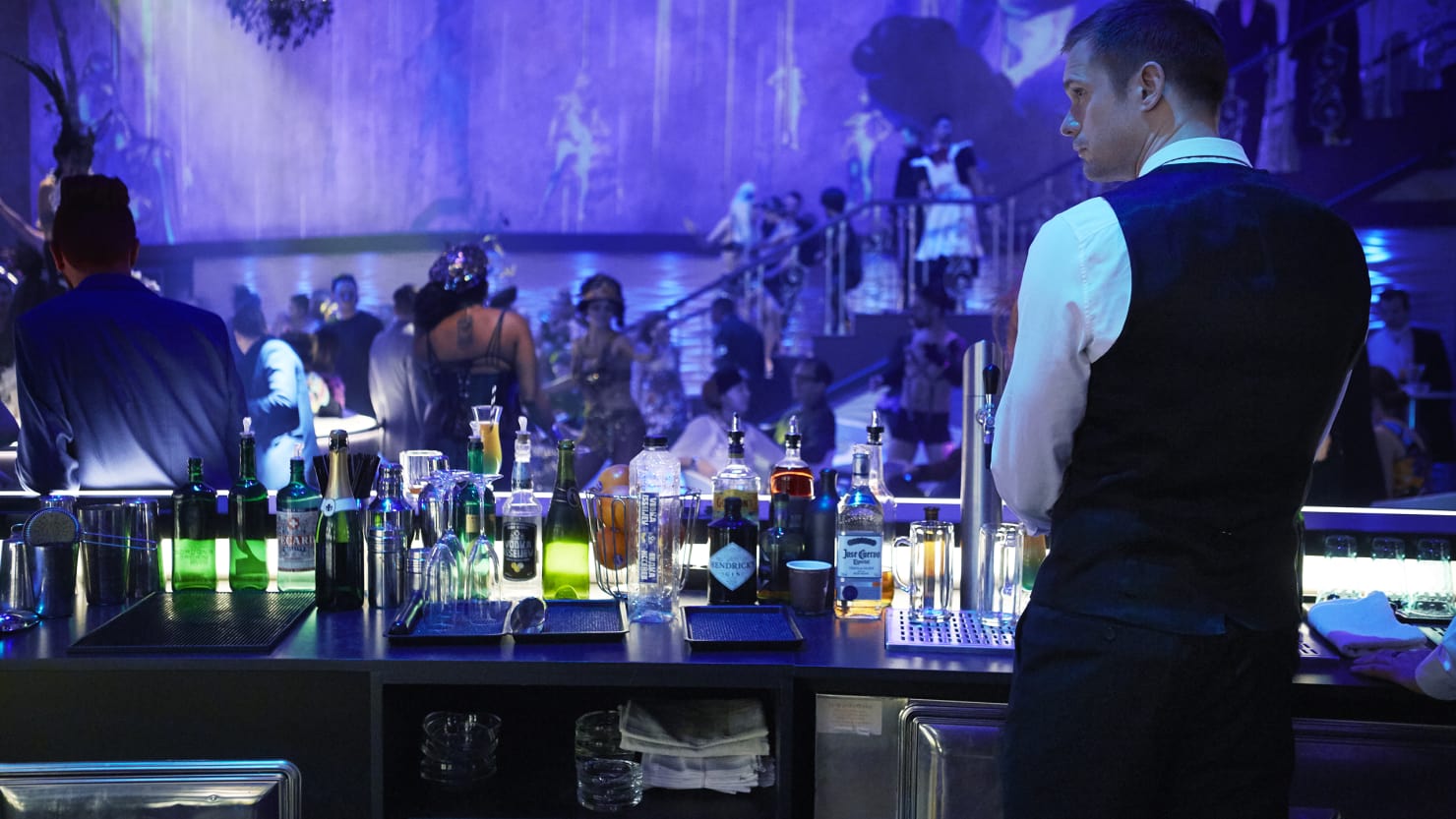Is Mute as good as Moon, Duncan Jones’ breakthrough hit? Or does his unique take on science fiction fail to find its feet this time around?
Before landing the Warcraft adaptation in 2016, Duncan Jones made a name for himself as a writer/director with fresh, unique takes in science fiction genre. His first film, Moon, showcased his ability to tell a rich story in simple, confined spaces and settings while follow- up Source Code expanded his ability for complexity by telling a Groundhog Day style story about a terrorist attack on a train. These films instilled hope in many moviegoers for the future of this bright creator.
Since Source Code, what was once hope and excitement for Jones’ projects has now turned to questionable cautiousness at best. His recent release, Mute, does nothing to prove that Warcraft, a sharp 90-degree detour from his previous projects, was simply a production company’s hand-in-the-cookie-jar nightmare. If anything, it only creates doubt and confusion as to how this personal project could have been such a disappointment.
Mute tells the tale of an Amish man (Alexander Skarsgard) who can’t speak due to a boating accident when he was a child. Now, he bartends in a sleazy bar in the heart of Germany. When his girlfriend (Seyned Saleh) goes missing, he goes on a revenge quest to find her, all the while uncovering secrets surrounding his lover.
This film oozes a steampunk, Blade Runner-inspired setting. Glossy gadgetry mixes with grimy and dirty objects from the past to reflect a world that simultaneously suggests progress but also shows its inability to move on from the past and what it has to offer. This exterior world is often juxtaposed with indoor settings that look like a recreation of a classic 90s sitcom home. These differences in set pieces reflect a sense of desire to be urban in an increasingly metropolitan society.
Unfortunately for this film, the positives stop at the set design. Skarsgard portrays a man who can’t speak but fails to live up to this challenge, lacking nuance in his facial expressions as well as subtle twitches and nods. Ultimately, this fails to drive the performance, making his character forgettable and ultimately his journey unimportant.
Paul Rudd, who plays Cactus Bill, is one actor who can boast an extensive acting range. However, his storyline often gets side-lined by Skarsgard, making the role feel flat and unfairly unexplored by the time his character resolution happens.
On top of shaky characters, Jones’ narrative weaves in and out of poorly scripted conversational scenes and short, uneventful action set pieces. The film never takes much time to examine the world in which it takes place, which makes the story feel rushed and the setting undeveloped. An important aspect of science fiction lies in an aesthetic that reflects the state of the world, and Jones’ word has that aesthetic, he just never takes the time to really show us what that place is like. This creates a noticeable pacing issue that makes many scenes feel rushed, yet in the end, the film felt like it ran about 40 minutes longer than it did.
In the end, Mute does have some good aspects in its corner. Rudd puts on a solid (albeit thinly used) performance and the setting, and when we get to see it, is truly something to behold. Despite those things, Mute fails to find its footing in the world of science fiction, and it likely never will.
Gus Hunninghake
(Image courtesy of The Daily Beast)

